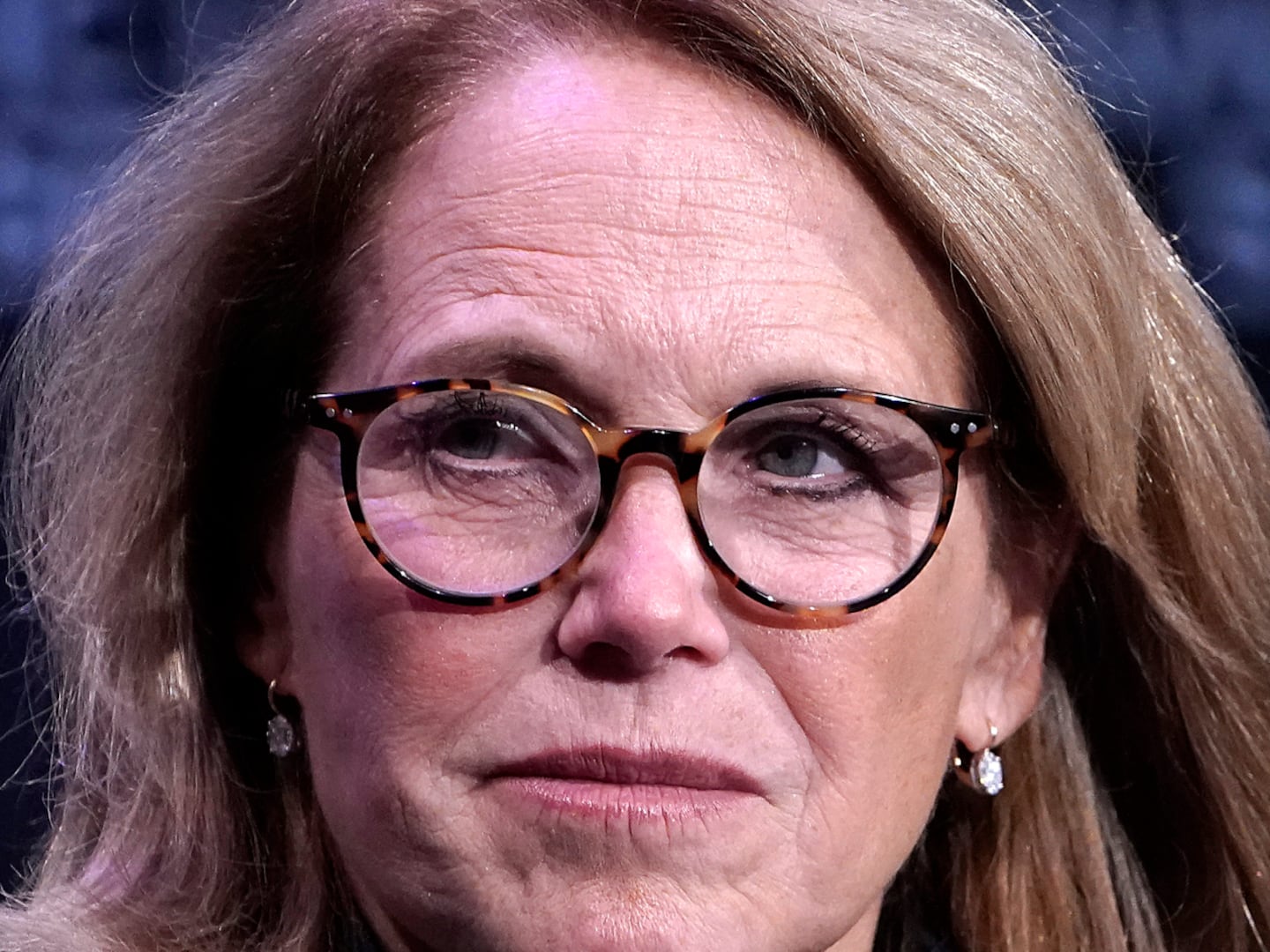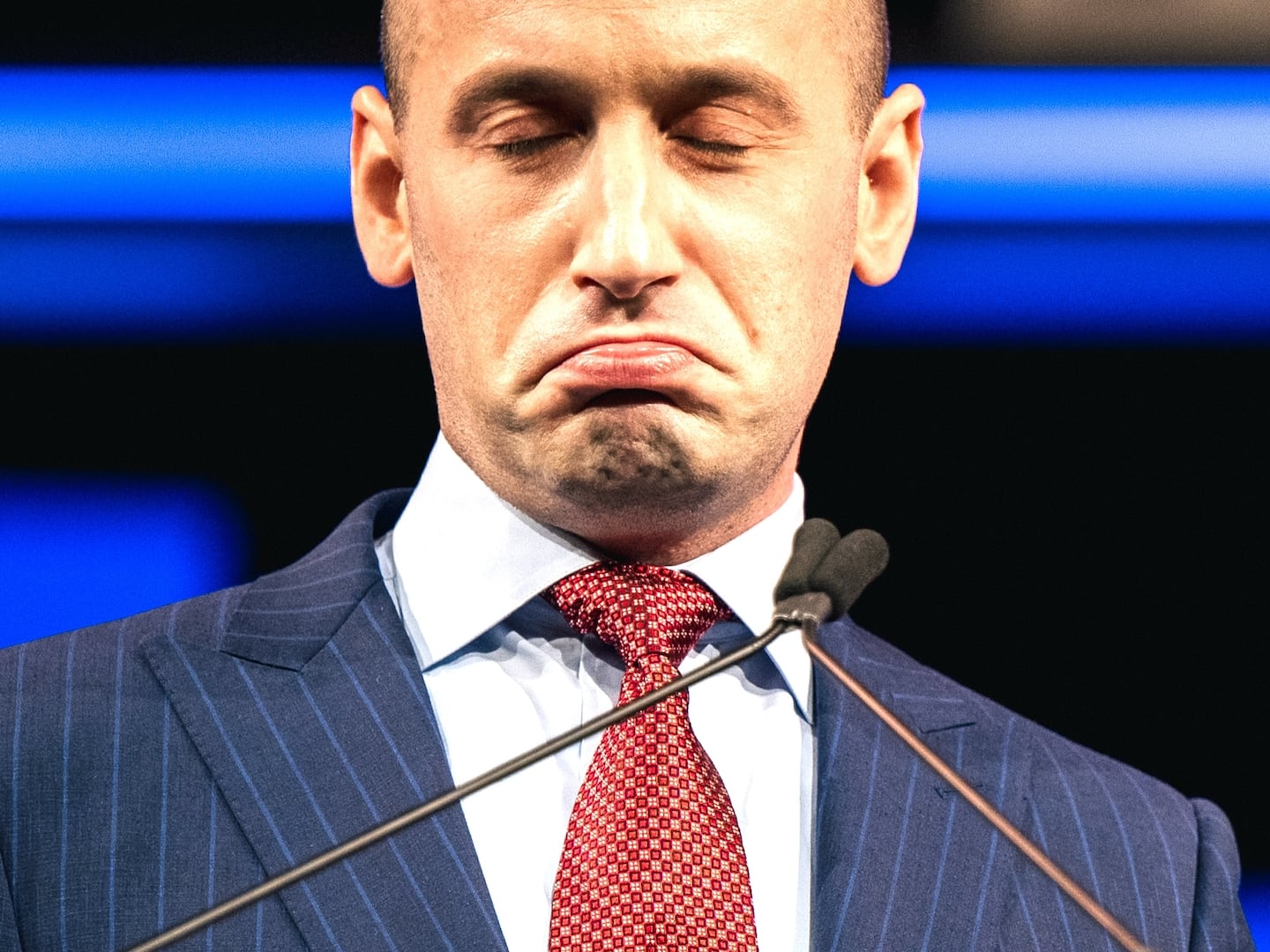The year-long fight between Sofia Vergara and her ex-fiancé Nick Loeb concerning the fate of two frozen embryos seemed all but over this week. Now a surprise and bizarre lawsuit filed in Louisiana on behalf of the embryos themselves by a mysterious cast of characters has breathed new life into the dispute and is poised to challenge a never-before-tested decades-old statute that gives embryos in one of the county’s most pro-life states, rights as people.
While it may seem like a longshot, legal experts reached by The Daily Beast say the plaintiffs have got a small, but very real chance at some kind of success.
The petition, filed in Jefferson Parish on Wednesday afternoon and reviewed by The Daily Beast, lists three plaintiffs: two embryos named Isabella and Emma, and James Charbonnet, a New Orleans resident with no clear ties to Vergara, Loeb, or the product of the pair’s IVF efforts other than as the trustee of a fund meant to provide for their health, education, maintenance, and support.
The Louisiana lawsuit falls on the heels of a Monday request by Loeb to drop his 2015 California case which seeks to bring to term the embryos he and the Modern Family actress created during happier times in 2013. According to the new petition, Loeb is giving up because the California judge ordered, and he refused, to submit the names of former girlfriends who allegedly had abortions over the course of the relationships as part of discovery. The judge in that case was already set to rule on a motion for dismissal of the case filed by Vergara.
There is no request for financial award, because, the petition states, “there is no adequate amount of money that could remedy the loss of life of Emma and Isabella, two unique human beings.” Instead representatives for the embryos—which remain frozen in California—are asking the court order their immediate transfer to a uterus so that they can develop and be born. This can be accomplished, the suit argues, if a court will declare the California fertility contract signed by Loeb and Vergara void, since it didn’t include a provision concerning the fate of the embryos should the couple break up. Further they’re asking the court to terminate Vergara’s parental rights and reclassify her as an egg donor. Citing child neglect laws, the complaint claims “By leaving Emma and Isabella in a tank in a medical clinic for more than three years and refusing to consent to their development or care, Vegara has effectively abandoned and chronically neglected and Emma and Isabella.”
Vergara, now married to Magic Mike actor Joe Manganiello, has said she wants to keep the embryos “frozen indefinitely.” Loeb responded in a New York Times op-ed that such cryogenic limbo would be “tantamount to killing them.”
It is unclear whether this new suit actually involves Loeb, but it’s safe to assume he’d be sympathetic to the cause. The 46-page petition does not include the 41-year-old businessman as a party and never explains who actually started the trust, yet it includes several private texts between the former couple documenting the IVF process (“You can’t keep 4 frozen lives forever or kill them, we will go to hell,” Loeb allegedly sent in one) as well as the fallout from their breakup (“We still have those 2 frozen babys,” he wrote in another).
Vergara, Loeb, and their respective lawyers could not be reached for comment.
Lingering questions aside, legal experts reached by The Daily Beast agreed the suit was extraordinary.
“I have never heard of this. Never,” said Monica Hof Wallace, a professor at Loyola University’s New Orleans College of Law. Wallace said although the plaintiffs “face an uphill battle,” she doesn’t expect the case to be dismissed—not outright, at least.
Wallace, who teaches courses in Louisiana’s civil law of persons, said she and her students discuss what the state’s one-of-a-kind human embryo statute really means, as well as its potential real-world implications, but says to her knowledge, there has never been a case which cited the statute.
The very beginning of Louisiana's civil code designates two types of persons: natural persons and juridical persons. “A natural person is a human being,” Wallace explained. “A juridical person is an entity to which the law attributes personality, such as a partnership or corporation, or in this case, in vitro fertilized human ovums.”
Passed in 1986, the Louisiana law conferring personhood on embryos was the first and remains the only law of its kind. As part of their special status, the state grants embryos the explicit right to sue and be sued, prohibits their ownership or destruction, and requires any dispute to their futures be resolved in their “best interests.”
“We have a very favorable human embryo statue where we really do give rights as a juridical person,” Wallace said. “And it appears the attorneys did their due diligence. Louisiana has a trust code, and they named the trustee as a plaintiff, so it seems to give him jurisdiction to sue.”
As juridical persons, the Vergara embryos have all these rights and more, the plaintiffs claim, particularly the right to life itself, as well as access to the inheritance of the James Charbonnet-administered trust, which contains an undisclosed inheritance.
“It’s tenuous, but the fact that they have a trust here adds another layer. From a legal standpoint, it was well thought out. I’m not sure we’ve ever thought of doing that,” Wallace said.
The masterminds behind the operation are a pair of lawyers, James Arruebarrena and Catherine Glenn Foster. Arruebarrena, who did not return a request for comment, is an employment and personal injury attorney who doesn’t seem to have experience in family law. According to his website, he is known as “The Equalizer” for his ability to “level the playing field.”
Foster’s interest in the case is more transparent. Currently admitted to practice law in Virginia, Foster, 35, has dedicated her career thus far to working for firms with a pro-life agenda and appears often in the press to comment on the issue. In August, she colorfully responded to a hidden camera video showing a plumber contracted by Planned Parenthood telling protesters he was “here for the work” and would install toilets for the KKK if they wanted them: “Given Planned Parenthood’s 100-year history of racism and misogyny, we should not be surprised that a supporter of an organization that would flush human rights down the toilet would be in league with the organization that will be washing babies’ blood down the sink,” Foster said on the anti-abortion website, Life Site News.
Foster also writes about controversial conservative causes for several right-wing publications. In a 2012 post typical of her style at American Thinker, Foster railed against the Girl Scouts, writing that since the group omitted the word “God” from their oath in 1993 “there has been a slow but steady slide that has landed the organization in the not-so-loving arms of Planned Parenthood, and the feminists and hard-left politicians whom Planned Parenthood attracts.”
According to her biography in a fundraiser for a Maryland Pregnancy Clinic, Foster “engages judges, legislators, and the public with Sound Legal Group, her mission-driven law firm which advocates for life and supports pro-life organizations.” News articles over the last year have similarly named Sound Legal Group as Foster’s firm, though according to Virginia’s State Corporation Commission, she just formed the company on Friday.
When reached by email, Foster declined to answer questions about the petition but promised “to be in touch when I do have a comment.”
Health law and bioethics expert Seema Mohapatra noticed the anti-abortion language sprinkled throughout Foster’s complaint and described her impression of the lawsuit as “frivolous,” though she too, wouldn’t rule out a possible favorable outcome.
“In terms of public policy this would open the floodgates,” Mohapatra, a law professor at Barry University in Orlando, Florida, told The Daily Beast. “Assigning legal rights to some cells in a petri dish that might have some potential to become a person if several steps are successfully completed?”
“Crazier things have happened, but I would be shocked,” Mohapatra said, explaining that in disputes over custody of embryos, courts tend to almost exclusively favor the party who desires not to be a parent.
An exception occurred in 2015 in Illinois, when a court decided Karla Dunston, 43, had a greater interest in and would retain custody of three frozen embryos she and her ex-boyfriend Jacob Szafranski had created in 2010 as she prepared for a cancer treatment that would leave her infertile.
It's a small world: Dunston's attorney, Abram Moore, represented Nick Loeb in his unsuccessful California case.
Jeffrey Parness, professor emeritus at Northern Illinois University and the author of a forthcoming book on federal and state parentage laws, described their search for a hospitable court as “forum shopping.”
“This is the way it works with Assisted Reproductive Technology. We have a hodgepodge of very state specific laws. So [the lawsuit’s backers] looked for the most pro-life personhood friendly state they could find and then set up a trust so they would have standing.”
Ironically, while filing the case in Jefferson Parish gives it the greatest chance of success because of its unique human embryo law, the location is also likely to become its greatest hurdle.
“Should Louisiana law apply to embryos who aren’t situated there? Who weren’t established, created, or stored in Louisiana?” Parness asked.
Parness said the case’s other challenge will be one of jurisdiction. In other words, he says, “The court will have to ask ‘What does Vergara do in Louisiana that makes it fair to drag her back here?’”
In an attempt to settle the jurisdiction question, the lawsuit mentions several additional ties to the state beyond it being the site of embryo’s trust. Vergara spent months filming there while Loeb is a graduate of Tulane University and has based a businesses in Louisiana, according to the petition. The suit also claims Vergara and Loeb discussed and made decisions about IVF, and broke up while in The Pelican State.
And heartbreakingly, if not so lawyerly, Louisiana was also the setting of Loeb’s “most cherished hopes and dreams,” which, the suit claims Vergara “stole” when she “abandoned” Isabella and Emma after their split.






